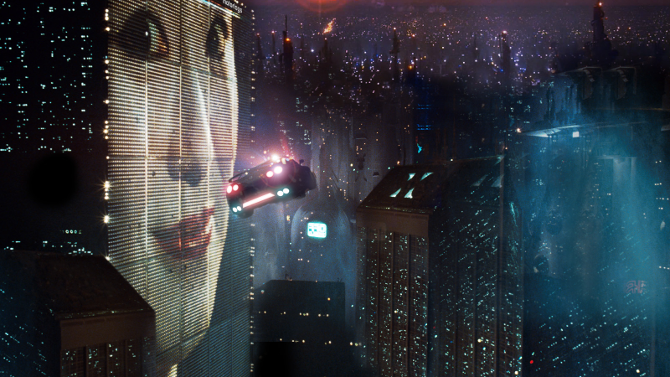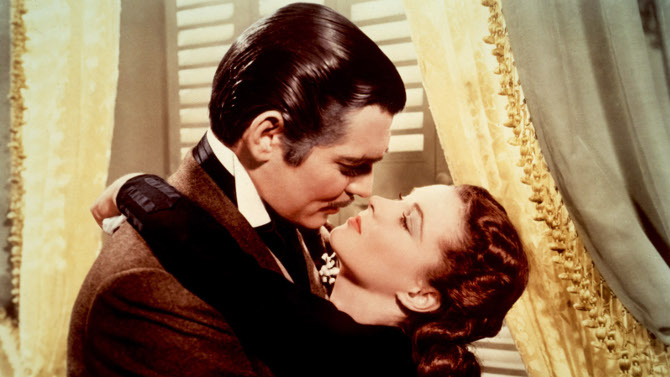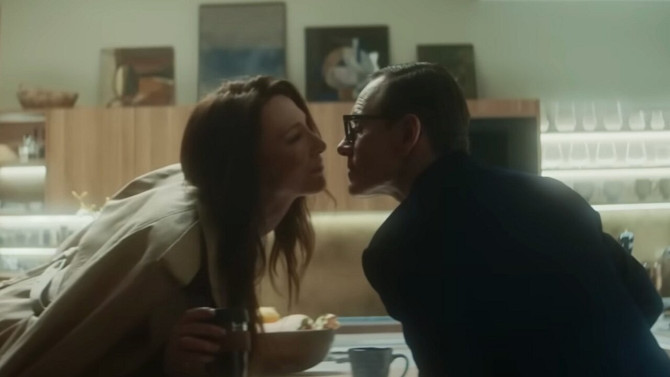
An Attaché Case
In 2025, dare I say that it’s nice to be highlighting a film made for mature audiences. Avoiding the pratfalls of sequels, remakes, comic book movies, and overly costly bombast, Black Bag, written by David Koepp (Mission: Impossible) and directed by Steven Soderbergh (Traffic), is most easily described as an old school spycraft feature. Opening with an extended tracking shot of spy George Woodhouse (Michael Fassbender) making his way through a happening nightclub in London, his contact soon informs him that there is a rat leaking some sort of tech software named Severus from within the agency. If there is one thing Woodhouse despises, it’s a liar, so he invites all of the suspects to a dinner party to try to get to the bottom of it.
-
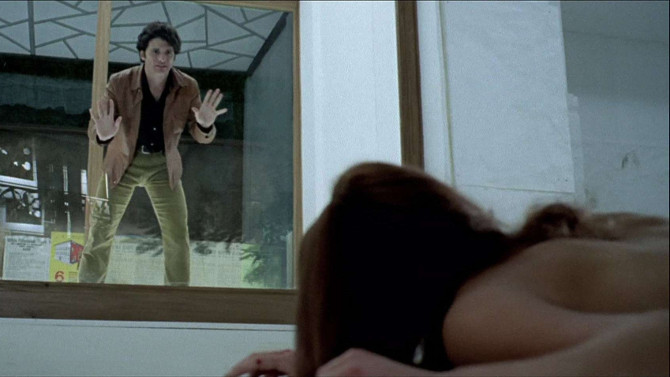
Super Dario
The Bird with the Crystal PlumageJune 12, 2018Picture this – a stunning modernist gallery catches the eye of a passerby late one night, not because of its striking white floors and walls that are the backdrop for noteworthy pieces of art, but rather, because it is the scene of a brutal attack. . . a woman being knifed by a man dressed in a dark raincoat, fedora and gloves, her panicked look and seeping blood in stark contrast to the pale decor. Attempting to rescue her, he gets stuck between two hard-wired glass door panels – this is the hook for the benchmark 1970 giallo The Bird with the Crystal Plumage, written and directed by Dario Argento. The man is Sam Dalmas (Tony Musante), a struggling author from the United States. Coming off of a bender, it is this disturbing sight that enlivens his senses, a chivalric jolt of adrenaline. Though he cannot rescue the girl directly, he is able to sound the alarm, flagging a late-night walker who calls the police.
-
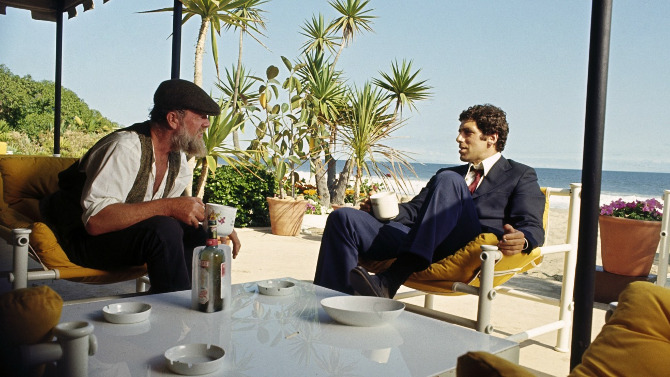
The Marlowe Man
The Long GoodbyeApril 6, 2018Tackling Raymond Chandler’s1953 novel “The Long Goodbye” (which features detective Philip Marlowe) in a unique way, director Robert Altman decided to, “call him Rip Van Marlowe, and we took the position that he had been asleep for twenty years, woke up, and Elliott [Gould] just wandered through that film. . . and that was our idea – that he was wandering through this landscape, the film trying to invoke the morals of a previous time into this early seventies.” Set exactly twenty years after the novel’s release date, detective Philip Marlowe (Gould) awakes in the middle of the night from a deep sleep – voice raspy, five o’clock shadow quickly moving onto six. . . a man in an endless stupor. His retro suits, skinny ties and constant smoking are out of place, much like his 1948 Cabriolet Lincoln Continental Convertible – a gent who is undoubtably from another time (even his salary closely resembles what a detective would make in the late 40s or early 50s).
-
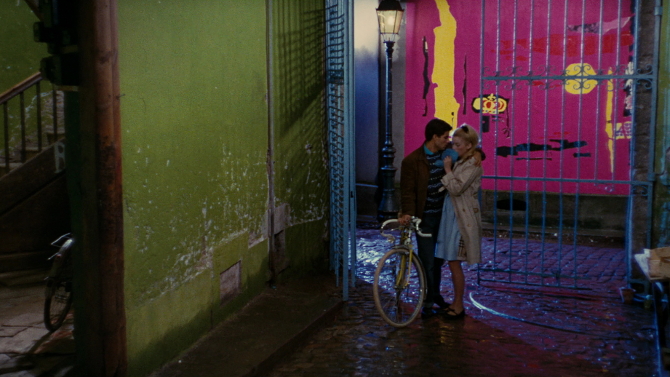
Mais Oui. . . Parapluie
The Umbrellas of CherbourgDecember 3, 2017Landing somewhere in between French New Wave, older classic French features and the grand Hollywood musical, Jacques Demy’s 1964 colourful kaleidoscopic romantic drama, The Umbrellas of Cherbourg, is most definitely not your typical movie musical. Firstly, there is no dancing (a standard in musicals), rather, Demy orchestrates many lengthy choreographed takes with his camera – it adding the graceful movement that would usually be asked of the actors. But, more importantly, and at greater risk, every single line of dialogue in Cherbourg is sung. Perhaps a bit daunting to movie audiences, it does, in some ways, make sense. I have never bought into the idea that people would just randomly break into song and dance at any given time. . . only a few films giving some sort of reason for this (see Singin’ in the Rain and La La Land), so it is more plausible, in this vividly toned movie landscape, that people naturally sing all the time – this means no distracting breaks between song and talk.
-
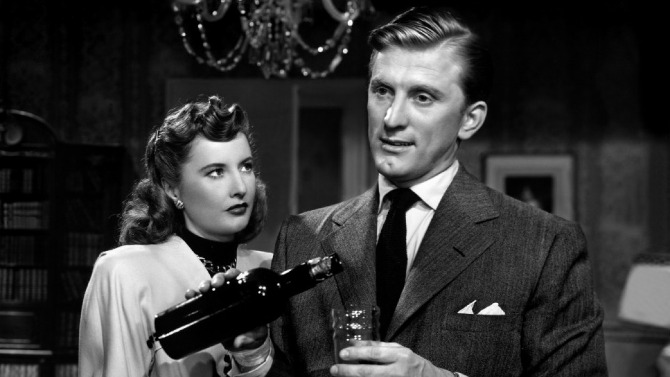
Grave Steps are Taken
The Strange Love of Martha IversNovember 26, 2017Uniting a superlative film noir cast, 1946's The Strange Love of Martha Ivers, directed by Lewis Milestone (a two time Academy Award winner, one of which he earned for All Quiet on the Western Front), begins with a triumvirate of childhood friends witnessing a crime which forges a unique bond between them, it informing their respective directions into adulthood. Building off of her performance in Double Indemnity two years earlier, Barbara Stanwyck, playing the title character, once again proves why she is one of the all-time great femme fatales. . . a calm, controlled, ruthless Machiavellian puppet master, she not only pulls the strings of her weak and feeble alcoholic husband Walter O’Neil (Kirk Douglas in his first film role – and against type from what we would later know) – who truly loves her, but she also has a manipulative control over the entire city in which she lives – owner of the plant that gives its people their jobs, the police that protect it (thanks to her husband, who is the district attorney), and everything else in between.
-
Star Pick with Tia Carrere
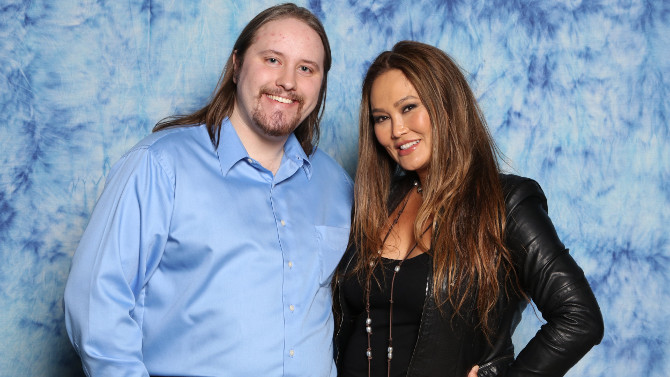 No Replicant RequiredBlade RunnerOctober 3, 2017
No Replicant RequiredBlade RunnerOctober 3, 2017The last few years have been a dream for fans of films and television series of the 1980s and 90s, as it seems like more and more are getting sequels (often after many long years), usually with at least a portion of the original cast (and often the director back in either the same role or that of producer) returning to play a part left behind long ago. Think, in no particular order, Dumb and Dumber, Full House, Mad Max, Rocky (Creed), Star Wars, Wet Hot American Summer (actually early 2000s), Jurassic Park, and, as of this Friday, add Blade Runner to the list. Returning to the silver screen thirty-five years after the original, Ridley Scott this time puts his executive producer cap on, with Denis Villeneuve taking over directorial efforts, while Harrison Ford delves into the Rick Deckard character once again. . . though, you’ll have to wait to hear more on that. As a lead-in to the long awaited sequel, the original 1982 picture is the focus today.
-
Star Pick with Michael Dante
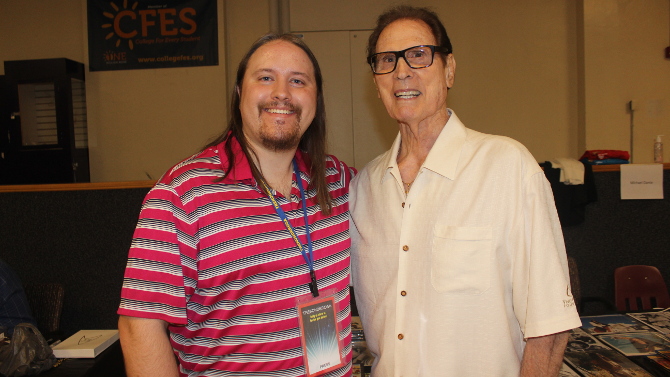 Gone with the Winds of ChangeGone with the WindSeptember 28, 2017
Gone with the Winds of ChangeGone with the WindSeptember 28, 2017It was lovely sitting down with veteran actor Michael Dante at Trekonderoga this past August. In the business for more than sixty years, it was not his original path in life. A top baseball player, he was signed by the Boston Braves out of high school. As fate would have it, he travelled a less expected path, finding his way, through interesting circumstances, into his first feature film, Robert Wise’s Somebody Up There Likes Me, in 1956 (with legendary names like Newman, Duvall and McQueen). Leading to an impressive career, Dante has graced the silver screen in such films as Westbound, Seven Thieves (Edward G. Robinson, Rod Steiger, Joan Collins, Eli Wallach), Kid Galahad (Elvis), The Naked Kiss (with famed director Samuel Fuller), Apache Rifles, Willard, as well as playing the title character in Winterhawk. . . this is just a small sampling of his work.

